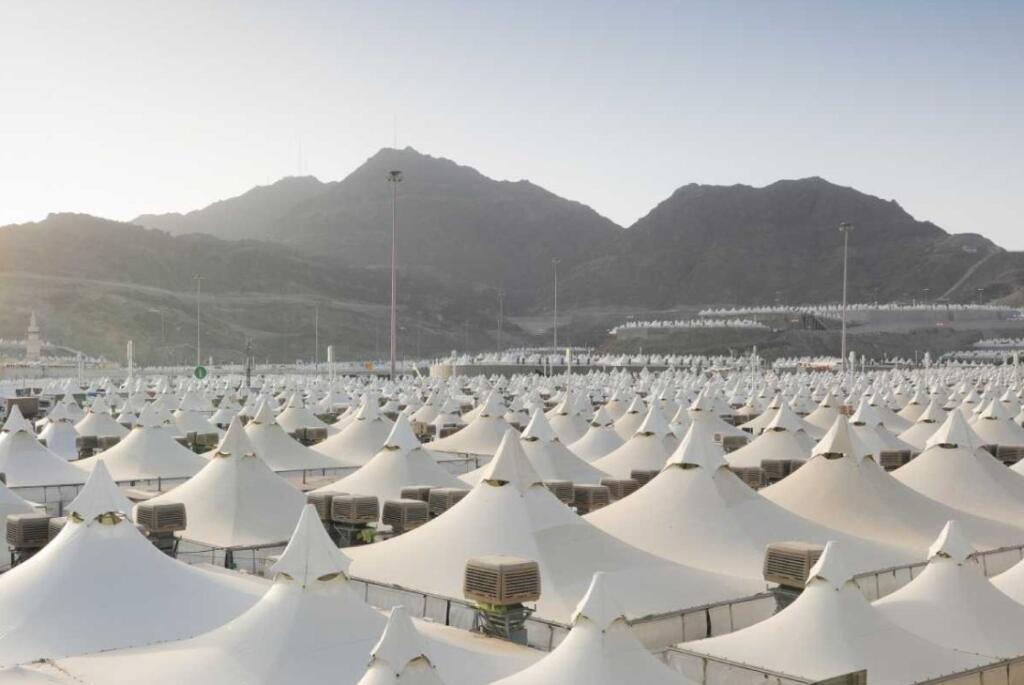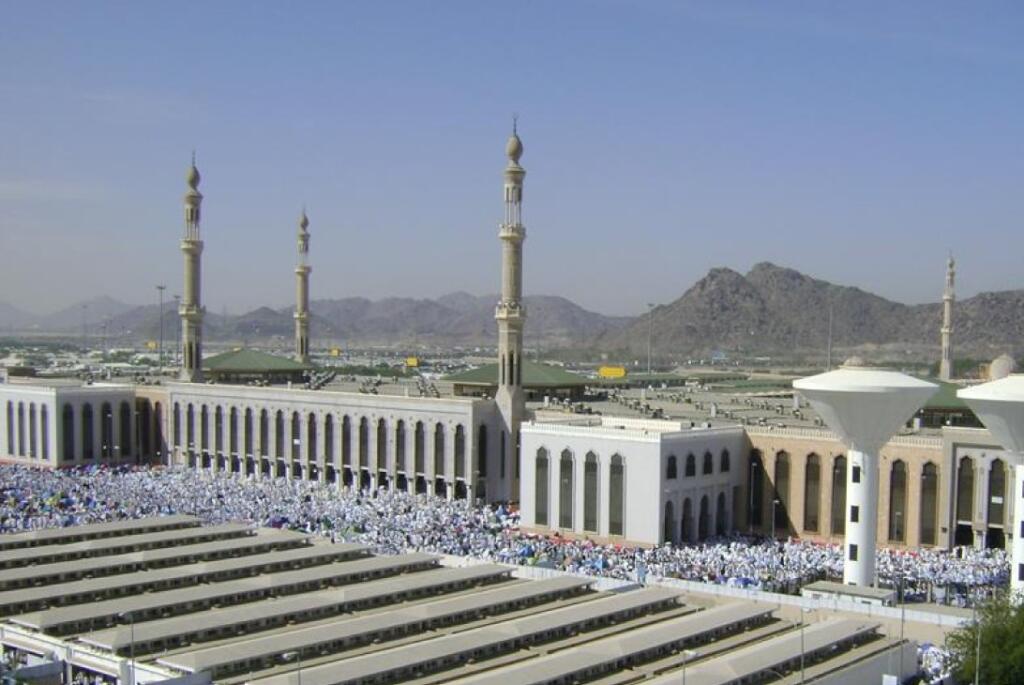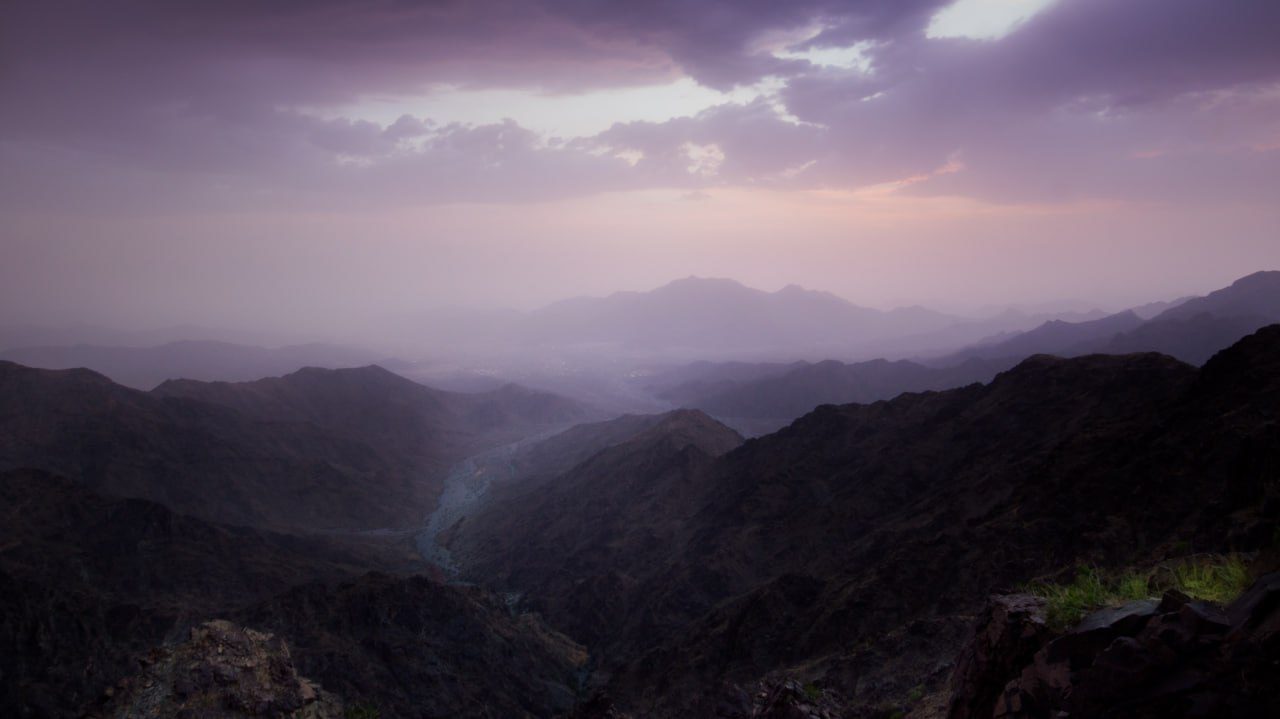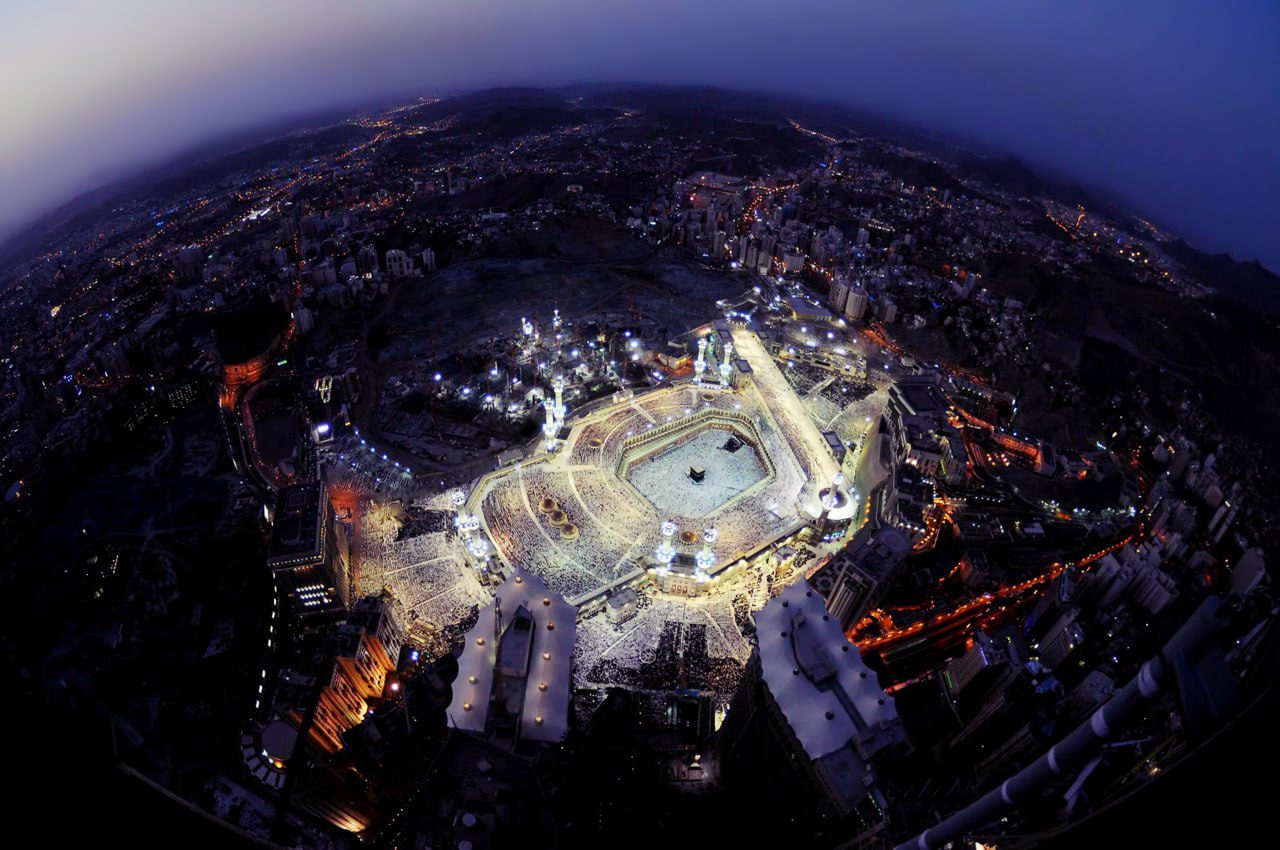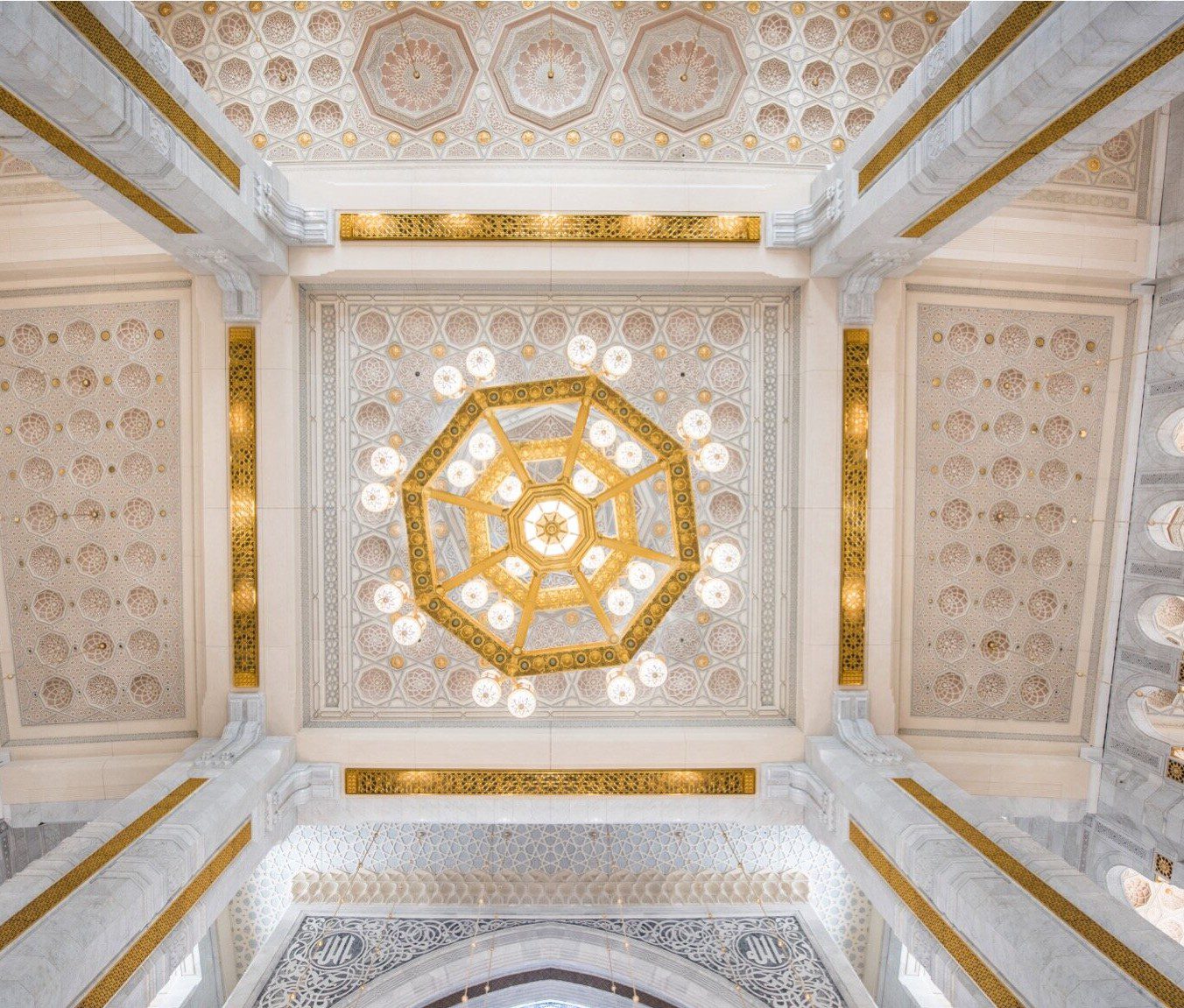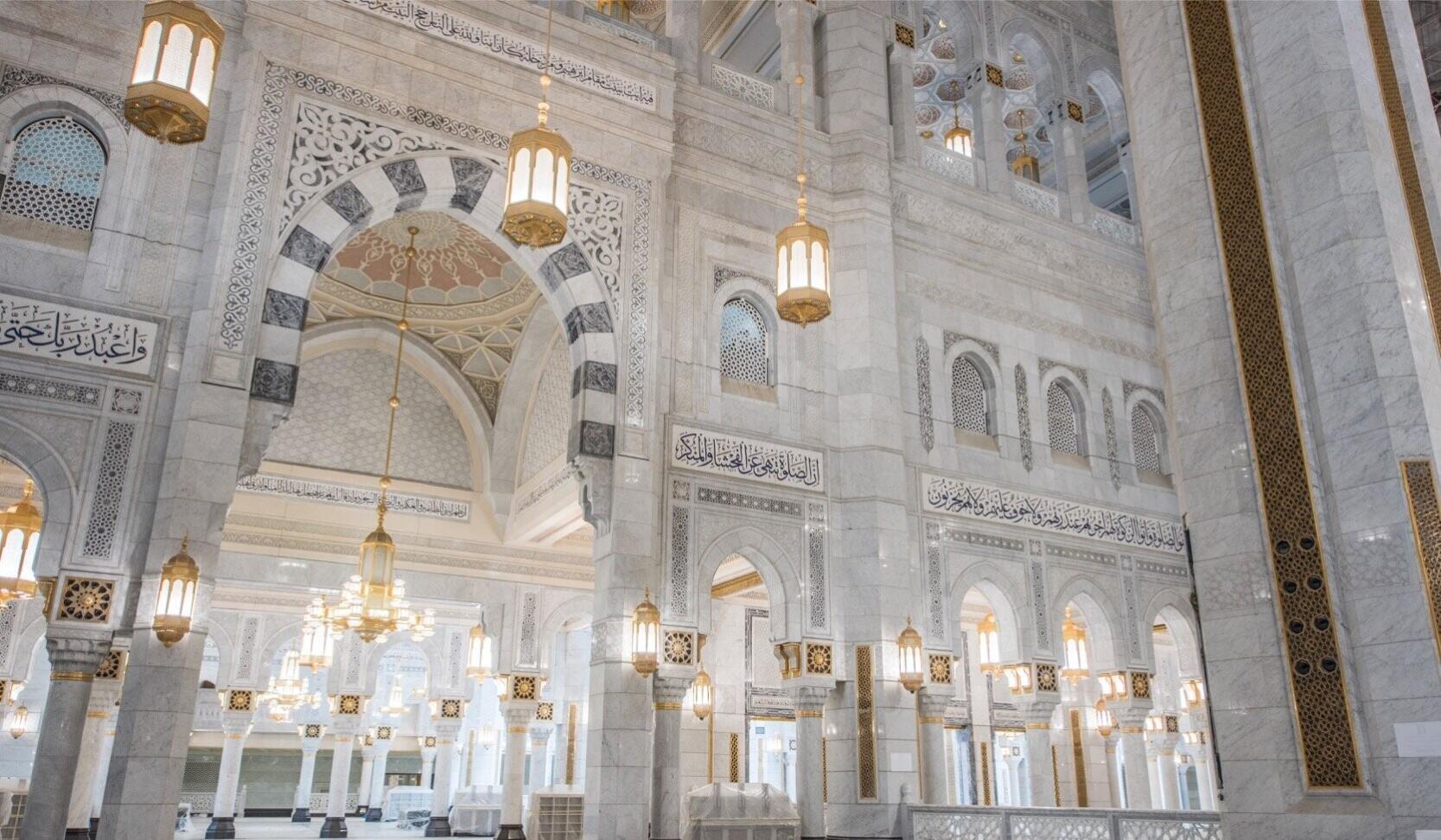The Day of ʿArafah is the best day of the year. It is the most important day of your life. Make sure it counts! It marks a turning point in your life, a shift from the old you to the new you. The Prophet ﷺ emphasised its centrality saying, “The ḥajj is ʿArafāt! The ḥajj is ʿArafāt! The ḥajj is ʿArafāt!” (Tirmidhi).
The Prophet ﷺ prayed fajr in Minā and after the sun rose, he left for ʿArafah.
Start reciting the takbīrāt of tashrīq once after each farḍ ṣalāh, starting from the Fajr of the 9th of Dhul Ḥijjah till ʿAṣr of the 13th Dhul Ḥijjah:
اَللهُ أَكْبَرُ اَللهُ أَكْبَرُ ، لَا إِلٰهَ إِلَّا اللهُ وَاللهُ أَكْبَرُ ، اَللهُ أَكْبَرُ وَلِلّٰهِ الْحَمْدُ
Allah is the Greatest. Allah is the Greatest. There is no god worthy of worship but Allah and Allah is the Greatest. Allah is the Greatest and all praise is for Allah Alone.
The Farewell Sermon of the Prophet ﷺ
Just after the sun reached its peak, the Prophet ﷺ rose to deliver a message. All eyes and hearts were focused on the Messenger of Allah ﷺ as he said: “Listen to me. You may not see me after this year.” He started by praising and glorifying Allah, and delivered the following key messages:
- Uphold human dignity: “Hurt no one so that no one may hurt you.”
- Honour and respect the rights of women: “Fear Allah in your treatment of women… take good care of (them).”
- Stay away from interest: “Allah has decreed that no usury is permitted.”
- Everyone is equal in the sight of Allah: “An Arab has no superiority over a non-Arab… a white person has no superiority over a black person – except by piety and good action.”
- Stay away from Shayṭān and hold on tight to the Qur’ān and Sunnah.
The Prophet ﷺ asked, “People, have I faithfully delivered to you my message?” The air vibrated with thousands of pilgrims replying, “O Allah! Yes!” The Prophet ﷺ raised his forefinger and said, “O Allah bear witness that I have conveyed Your message to Your people.”
Upon finishing the speech, Bilāl (raḍiy Allāhu ʿanhu) called the adhān and iqāmah. They offered the ẓuhr prayer, immediately called the iqāmah again and performed ʿaṣr, shortening the prayers.
The Prophet ﷺ then moved towards the Mountain of Mercy in ʿArafah. He faced the qiblah and occupied himself in earnest duʿā’ until maghrib. He spent approximately five hours in continuous duʿā’. He begged Allah ﷻ:
“O Allah, You hear my speech…I am the desperate and needy one, the one who is seeking Your help and protection, fearful and scared, one who confesses and acknowledges his sins. I beg You – the begging of a destitute; I humbly implore You – the imploring of a humiliated sinner. I invoke You – the invoking of the fearful afflicted person, whose neck is bowed down before You, whose eyes have overflowed with tears for You, whose body is humbled before You, and who has completely lowered Himself to You…” (Ṭabarānī).
Reflect: After years of struggle in conveying the message of his Lord, the whole of the Arabian Peninsula comes under the Prophet’s control and finally accepts his message. Yet, gathered on the plains of ʿArafah, at his highest point of victory, we do not witness parades or displays of pomp. Rather we witness nothing but humility and turning to Allah in desperate need.
One pilgrim fell off his camel, broke his neck and died instantly. The Prophet ﷺ said, “He will be resurrected on the Day of Judgement saying the talbiyah” (Muslim).
Reflect: What state do you want to die in? What will your last deeds be? How are your actions now shaping you for that moment?
Departing ʿArafah
After the sun had set, the Prophet ﷺ remained waiting, and so did the Companions (radiy Allāhu ʿanhum). His departure from ʿArafah was delayed because he was waiting for Usāmah ibn Zayd (radiy Allāhu ʿanhumā). When Usāmah, the dark-skinned child of former slaves, finally arrived, some people of Yemen remarked, “Is it for this one that we were held back?” The Prophet ﷺ then made Usāmah ride behind him, who was around 16 years old at the time.
Reflect: Look at how Allah ﷻ honoured Usāmah (radiy Allāhu ʿanhu) and how the Prophet ﷺ utilised a golden opportunity to display the justice of Islam. Your worth in the sight of Allah is based on taqwā, and not on how you look or how much you own.
He ﷺ then set off for Muzdalifah. He advised his Companions to remain calm when departing ʿArafah, saying: “People, remain tranquil and proceed easily…there is no virtue in rushing” (Nasā’ī).
Tranquillity encompasses: calmness, following orders, respecting the rights of others and refraining from chaotic and disturbing behaviour. Tranquillity allows the heart to be present: fully aware and in awe of the sacredness of the moment. When you slow down, you will be able to reflect deeply, take in the weight of your surroundings, and truly connect with the purpose of your journey.
Tip: You may find yourself waiting a long time for your coach to depart from ʿArafah or for your coach to arrive in Muzdalifah. Don’t let frustration or impatience steal these precious moments. Instead, remain calm and patient, and fill your time with the remembrance of Allah, istighfār, takbīr, talbiyah and ṣalawāt.
Just before departing from ʿArafah, ʿUmar b. ʿAbd al-ʿAzīz (raḥimahullāh) said, “The one who truly excels today is not the one whose camel reaches first (to Muzdalifah), but the one who has been forgiven.” In other words, true success on this sacred day is not about who reaches Muzdalifah first, but it is about acceptance, forgiveness, and closeness to Allah.

